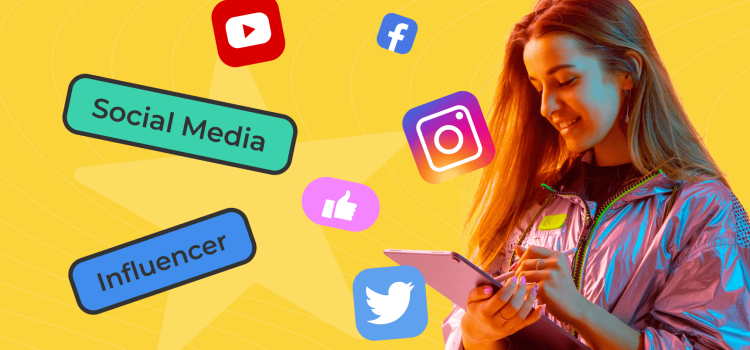
In today’s digital age, the influence of social media on consumer behavior is undeniable. Among the myriad factors shaping our purchasing decisions, influencers have emerged as pivotal players. These individuals, who have garnered substantial followings on platforms like Instagram, YouTube, and TikTok, wield significant power in guiding their audience’s choices. This article delves into the role of influencers in shaping consumer behavior, exploring the mechanisms through which they exert their influence and the implications for brands and consumers alike.
Understanding Influencers and Their Reach
Influencers are individuals who have built a dedicated audience by consistently sharing content that resonates with their followers. Unlike traditional celebrities, influencers often cultivate a sense of intimacy and trust with their audience by sharing personal experiences, opinions, and recommendations. This authenticity is a cornerstone of their influence, as followers perceive their endorsements as genuine and relatable.
The reach of influencers can vary widely, from micro-influencers with a few thousand followers to mega-influencers boasting millions. Regardless of their follower count, the key to an influencer’s impact lies in their ability to engage and connect with their audience. This engagement can manifest in various forms, including likes, comments, shares, and direct messages, all of which contribute to the influencer’s perceived credibility and authority.
Mechanisms of Influence
Trust and Authenticity
One of the primary reasons influencers are so effective in shaping consumer behavior is the trust they have cultivated with their audience. Unlike traditional advertisements, which are often viewed with skepticism, influencer endorsements are perceived as more authentic and trustworthy. This trust is built over time as influencers consistently provide valuable content and genuine recommendations.
When an influencer endorses a product or service, their followers are more likely to consider it seriously. This phenomenon is rooted in the psychological principle of social proof, where individuals look to others, particularly those they admire, for cues on how to behave. In this context, an influencer’s endorsement serves as a powerful form of social proof, encouraging followers to adopt similar behaviors and make similar purchasing decisions.
Personalized Recommendations
Influencers often provide personalized recommendations based on their own experiences, which can be highly persuasive. For instance, a beauty influencer might share their skincare routine, including specific products they use and the results they’ve achieved. This personalized approach resonates with followers who have similar needs or preferences, making them more likely to try the recommended products.
Moreover, influencers frequently engage with their audience by addressing questions and concerns, further enhancing the perceived value of their recommendations. This two-way communication fosters a sense of community and reinforces the influencer’s role as a trusted advisor.

Emotional Connection
Influencers excel at creating emotional connections with their audience. Through storytelling, sharing personal anecdotes, and showcasing their lifestyles, influencers evoke emotions that resonate with their followers. This emotional connection can significantly impact consumer behavior, as emotions play a crucial role in decision-making.
For example, a travel influencer sharing their adventures and experiences in exotic locations can evoke feelings of wanderlust and excitement. Followers who aspire to have similar experiences may be inspired to book trips, purchase travel gear, or explore new destinations. The emotional appeal of the influencer’s content drives these consumer behaviors.
Trendsetting and FOMO
Influencers are often at the forefront of trends, introducing their audience to new products, styles, and experiences. Their ability to set trends stems from their deep understanding of their niche and their audience’s preferences. When an influencer adopts a new trend, their followers are more likely to follow suit, driven by the desire to stay current and relevant.
Additionally, influencers can create a sense of FOMO (fear of missing out) among their followers. By showcasing exclusive events, limited-edition products, or unique experiences, influencers generate a sense of urgency and excitement. This FOMO effect can prompt followers to make quick purchasing decisions to avoid missing out on what the influencer is promoting.
Implications for Brands
Strategic Partnerships
Brands recognize the immense potential of influencers in shaping consumer behavior and have increasingly turned to influencer marketing as a core component of their strategies. By partnering with influencers whose values and audience align with their brand, companies can tap into a highly engaged and receptive consumer base.
These partnerships can take various forms, including sponsored posts, product reviews, giveaways, and affiliate marketing. The key to a successful collaboration lies in ensuring that the influencer’s endorsement feels authentic and aligns with their usual content. When done right, influencer partnerships can drive brand awareness, boost sales, and enhance brand loyalty.
Targeted Marketing
Influencers offer brands a unique advantage in terms of targeted marketing. Unlike traditional advertising, which often casts a wide net, influencer marketing allows brands to reach specific demographics with precision. By selecting influencers who cater to niche audiences, brands can tailor their messages to resonate with particular consumer segments.
For instance, a fitness brand may collaborate with fitness influencers who have followers interested in health and wellness. This targeted approach ensures that the brand’s message reaches individuals who are more likely to be interested in their products, resulting in higher conversion rates and a more efficient use of marketing resources.
Authentic Storytelling
Influencers excel at authentic storytelling, which can be a powerful tool for brands. Instead of relying on traditional advertisements, brands can leverage influencers to tell compelling stories that highlight the benefits and unique features of their products. These stories can take various forms, such as tutorials, unboxing videos, or behind-the-scenes glimpses.
By incorporating the brand’s message into their narrative, influencers can create a more engaging and relatable experience for their audience. This approach not only enhances the brand’s credibility but also fosters a deeper emotional connection with consumers.
Considerations for Consumers
Critical Evaluation
While influencers can provide valuable recommendations, consumers should approach their endorsements with a critical mindset. It’s essential to consider whether the influencer’s values, preferences, and experiences align with one’s own. Additionally, consumers should be aware of potential biases, as influencers may receive compensation or free products in exchange for their endorsements.
Research and Verification
Before making purchasing decisions based on influencer recommendations, consumers should conduct their research and verify the information provided. Reading reviews from multiple sources, checking product specifications, and comparing alternatives can help ensure that the decision is well-informed and suitable for individual needs.
Recognizing Authenticity
Consumers should be mindful of the authenticity of influencer endorsements. Genuine recommendations often come across as natural and unscripted, while sponsored content may include disclaimers or hashtags indicating a paid partnership. Recognizing these distinctions can help consumers make more informed choices.
Conclusion
Influencers play a significant role in shaping consumer behavior, leveraging trust, authenticity, personalized recommendations, emotional connections, and trendsetting to guide their audience’s decisions. For brands, strategic partnerships with influencers offer targeted marketing opportunities and the potential for authentic storytelling. However, consumers should approach influencer endorsements with a critical mindset, conducting research and verifying information to make well-informed purchasing decisions. As the digital landscape continues to evolve, the influence of these modern-day tastemakers is likely to grow, further shaping the way we discover, evaluate, and choose products and services.










